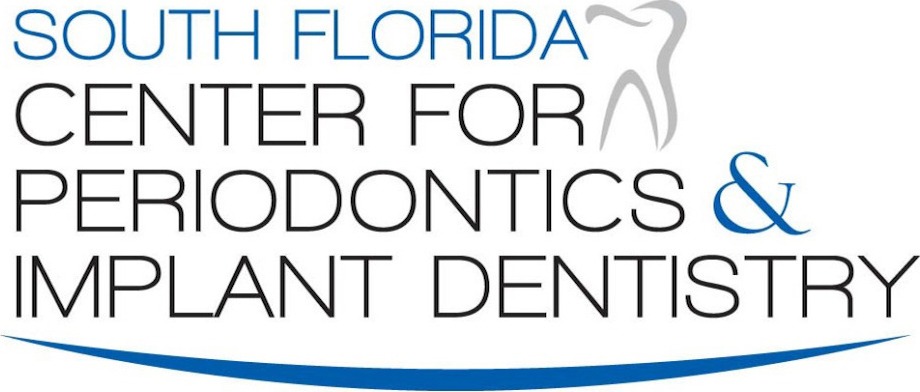FAQs

Periodontal Disease
Why I am being referred to a periodontist?
Gum disease is caused by bacteria. It is progressive, and there are times when advanced treatment is required to improve the condition of your gums and save teeth. Periodontists are specialists who are recognized by the American Dental Association. In addition to treating gum disease, periodontists are also experts in the relationship between oral health and overall health. They are highly trained in cosmetic procedures, and they are also experts in the placement and maintenance of dental implants. The doctors at the South Florida Center for Periodontics & Implant Dentistry have extensive experience, regularly publish articles in scientific journals, and teach other doctors. Click here to learn more about the doctors.
If left untreated, can periodontal disease affect my overall health?
Yes. According to the American Academy of Periodontology, “Research has shown that periodontal disease is associated with several other diseases. For a long time it was thought that bacteria was the factor that linked periodontal disease to other diseases in the body. More recent research demonstrates that inflammation may be responsible for the association. Treating inflammation may not only help manage periodontal diseases but may also help with the management of other chronic inflammatory conditions.”
What other connections are there between periodontal disease and systemic diseases?
The list is growing with new research. For example, scientists have known for some time that people with diabetes are more likely to have periodontal disease. New research indicates a two-way connection: periodontal disease may make it more difficult for diabetics to control their blood sugar. There are connections with cardiovascular disease, obesity, erectile dysfunction, rheumatoid arthritis, Alzheimer’s disease, pancreatic cancer, certain forms of leukemia, respiratory infections, etc. Also, it is very well documented that people with poor dental health have worse nutrition than those with good chewing ability. There are also associations with loss of teeth and reduced lifespan.
It doesn’t hurt and I’ve had bad gums for years.
We are pleased that you are not experiencing any pain, but our motto is “don’t wait until it hurts.” Left untreated, periodontal disease becomes worse over time. The proposed periodontal treatment will never be more conservative, less invasive, or more cost effective than it is today.
Will periodontal surgery solve the problems I am having with my gums?
Periodontal surgery may be recommended as a necessary component of treatment, but you will need to take good care of your teeth and gums at home and visit our office and your restorative dentist’s office on a regular basis for professional cleanings.
What other procedures do periodontists perform?
We are concerned foremost with your health. However, some of the procedures we perform are intended not only to control disease, but to provide you with a cosmetic benefit. Click here for information about these procedures.
What are some examples of the benefits of cosmetic periodontal procedures?
Some people have teeth that look too short due to the relationship between their teeth and gums. A procedure called “crown lengthening” is often used to remove excess gum tissue and expose more of the crown of the tooth. In fact, your gum line can be carefully sculpted to create just the right proportion between gum tissue and tooth surface—and the result is a better looking smile. Other patients may look older than their years because their teeth appear to be too long (“long in the tooth”). When gum tissue recedes due to periodontal disease, it pulls away from the teeth. Soft tissue grafts and other root coverage procedures are designed to cover exposed roots and make the teeth look much better. These procedures can also reduce further gum recession and protect the roots of the teeth from further decay.
Dental Implants
Why are the advantages of having a periodontist place dental implants?
Periodontics is one of ten dental specialties recognized by the American Dental Association. Periodontists have traditionally formed long-term relationships with patients and their restorative dentists. They make a thorough diagnosis in light of the patient’s dental and medical health. Periodontists are specifically trained in the placement and long-term maintenance of dental implants, and their expertise in managing soft tissue and the jawbone is of great benefit to the patient in all aspects of implant dentistry.
What is the best way to replace a missing tooth?
In most cases, dental implants are considered the standard of care for replacing missing teeth. The restorative phase of dental implant treatment is completed by your restorative dentist.
Is implant surgery comfortable?
Most patients are pleased to find out that implant procedures usually cause only minimal discomfort and may be more comfortable than other dental procedures such as extractions. Prior to and during procedures, oral sedation, local anesthesia and intravenous sedation may be used to keep patients comfortable. Following treatment, over-the-counter pain medication is recommended. Prescription medicine is also available if needed.
Are implants expensive?
Dental implants are replacement body parts that look and function like natural teeth. They give patients the ability to eat, chew, smile, and laugh naturally. Implant patients are very happy after treatment and consider their implants to be an excellent value for the dollar as well as a long-term investment in the quality of their lives.
How long do implants last?
Implants can potentially last a lifetime, although they are subject to problems like inflammation and bone loss similar to teeth. It is not uncommon for the restorative components to wear or chip while the implant (root replacement portion in bone) remains stable. If this occurs, you do not need to replace the implant, just modify, repair or replace the tooth portion, which is done by your dentist.
Are all dental implants the same?
There are more than 5,000 types and brands of dental implants. We elect only to use those from major manufacturers that have confirmed precision manufacturing, quality control and evidence documenting their predictability. We rely on the research and development teams of these manufacturers to provide the best and most reliable products.
Since we hope the implants we place last a lifetime, we also need to rely on the availability of parts for them in case the restorations need replacement or modification.
Be aware that many dentists advertising discount fees also use discount implants and components that are less expensive. We don’t believe that when you replace body parts (teeth), that it is worthwhile using products that are “just like” the best manufacturers’ to save money or cut some corners.
Will my dental insurance cover dental implants?
Dental implant treatment is often beyond the scope of dental benefits. However, we will work closely with your dental and medical insurance companies to determine whether any of your specific benefits apply to dental implant treatment.
Are there alternatives to implants that are less costly?
Our philosophy is to treat patients once and treat them right. We have found that dental implants are often the most cost-effective treatment over a lifetime. Dental implants are kinder to adjacent teeth than a bridge or partial denture. Dental implants are also more natural, and they help preserve bone, which helps prevent the appearance of premature aging.
I have heard that implant treatment is available in other countries at a much lower cost. Is this true?
The issue is cost versus value. The quality of dentistry performed in other countries varies considerably. In our office, patients are treated by doctors who have extensive experience in their field. Our doctors publish, teach, and stay on the leading edge of the latest scientific advances. In our office, our motto is, “It’s never cheaper to do it twice.”
Treatment performed outside the U.S. may be less than ideal, and follow-up care at these facilities is impractical. At our office, we are committed to upholding the highest ethical standards of our profession and we offer ongoing follow-up care. In fact, we have patients who travel to our office in Florida from other countries for treatment. These patients are seeking a “Sun and Smile” experience; they recognize that South Florida is one of the world’s leading tourist destinations and they come to us for care based on our international reputation.
How do I know that implants are going to work?
We set the stage for success by creating a thorough, customized treatment plan for each patient in cooperation with the restorative dentist. Dental implants have an outstanding success rate. They are designed to last many years.
What is the role of my restorative dentist when I have implant treatment?
Your restorative dentist is a key member of the team. We stay in close communication with your restorative dentist throughout your implant treatment. After you complete treatment in our office, the restorative dentist securely attaches the final restorations to the implants. The result is a natural-looking restoration that allows you to eat the foods you want.
What can be done to minimize the risk of complications?
As with any medical or dental procedure, there is always some risk of complications. Although this risk cannot be totally eliminated, it can be minimized. The doctors at the South Florida Center for Periodontics & Implant Dentistry have years of experience and have placed tens of thousands of dental implants. This depth and breadth of experience is significant. The doctors carefully review the patient’s medical and dental history prior to treatment and work collaboratively with the patient’s restorative dentist. The doctors believe that thorough diagnosis and treatment planning are essential for long-term dental implant success. In addition, the doctors at our modern facility use the latest equipment and materials. Finally, the doctors recommend a maintenance program that includes conscientious home care and regular professional dental visits to help ensure that dental implants will function for many years.
What is your policy regarding treating complications?
We stand behind our treatment although we cannot guarantee success. In most cases, we will re-treat or refund unsuccessful outcomes if they occur within the first two years. If problems occur afterward, we will pro-rate your fees based on the amount of time that has passed. This financial responsibility may be modified based on other circumstances related to your specific case and will be outlined in advance.
Dentistry merges art and science and there are no guarantees related to specific results, regardless of who performs the treatment. The professionals at the South Florida Center for Periodontics & Implant Dentistry (SFCPID) develop treatment recommendations with techniques and materials to provide our patients with the best treatment outcomes resulting in safe, predictable, long-lasting results. Fees include all post-operative visits including a final evaluation following final restoration by your dentist.
The confidence in our treatment is reflected in the significant responsibility we are willing to bear for your treatment success. Complications are rare but can occur for reasons beyond our doctors’ control. We treat complications without charge provided that you follow all recommendations regarding professional follow-up and home care and maintain reasonably good overall health. However, it is important to understand that you also have responsibilities. Patients who do not comply with recommended maintenance (professional cleanings by a hygienist) and effective personal home care may void SFCPID responsibility. In addition, changes in your overall health may be beyond anyone’s control and may affect dental health, success of treatment, and may therefore void SFCPID‘s financial responsibility.
How long does it take to complete dental implant treatment?
Obviously, the answer depends on your specific needs. Implants require at least six-eight weeks to form a mature connection to the jawbone. However, the implants can be put into use under the right circumstances before that connection is formed, which is how and why we pioneered TeethToday® to ensure that no one leaves our office without teeth. We take that promise seriously and work hard to accomplish it very successfully. Click here for additional information regarding TeethToday®.
